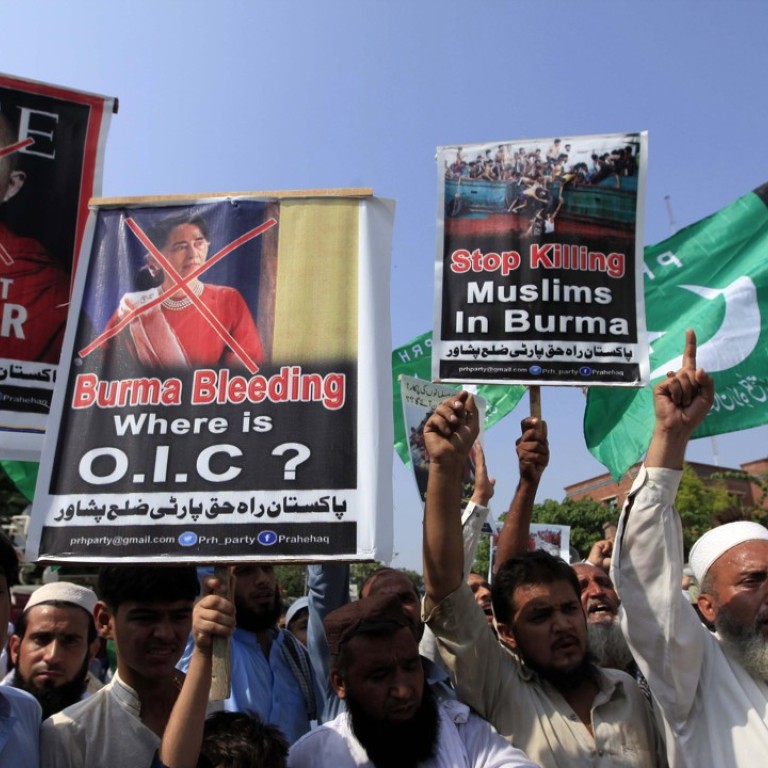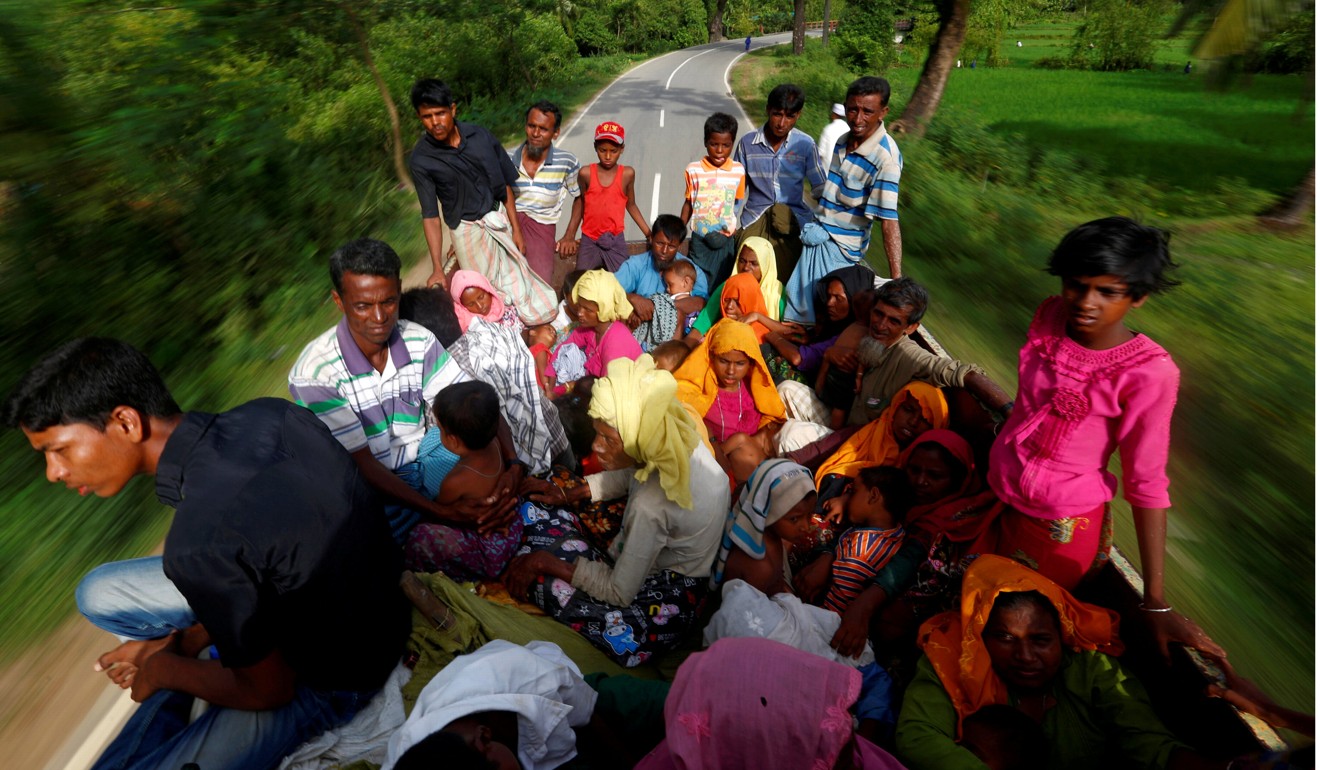
Suu Kyi must seek an end to Rohingya crisis
Her lack of criticism of the army’s brutality towards the Muslim ethnic group in Myanmar has led to a tarnishing of her image and raised doubts of her commitment to peace
Aung San Suu Kyi’s years of struggle for democracy and rights in Myanmar inevitably led to her name being associated with courage, bravery, strength and dignity. She was perceived as a beacon of hope, not just for the people of her country, but the oppressed around the world. When her political party overwhelmingly won elections and she became de facto president under reforms implemented by the junta, long hoped-for change for the downtrodden seemed inevitable. But her lack of criticism of the army’s brutality towards the Muslim Rohingya ethnic group in northern Rakhine state has led to a tarnishing of her image and raised doubts of her commitment to peace.
More than 300,000 Rohingya have fled to neighbouring Bangladesh, hundreds of people have been killed, rapes committed and homes burned in retaliation for the latest strikes by Muslim militants on army posts. But Suu Kyi largely has her hands tied; she has to consider a population that is 89 per cent Buddhist, growing extremism in Rakhine and the constraints on her governance posed by the military, which controls security and border issues. Myanmar’s 1.2 million Rohingya have long faced discrimination and persecution despite having lived in the country for generations. Ethnic minorities in northern Kachin and Shan states, where the army has ramped up an offensive despite promises by Suu Kyi to broker a peace deal, have similar fears.

Understandably, a number of fellow recipients of the Nobel Peace Prize have criticised Suu Kyi’s perceived inaction, some calling for her to give the award back or be stripped of it. They have hit out at her for blaming “fake news” for the crisis in Rakhine while doing nothing about bans on aid workers, journalists and independent investigators. The award is arguably the world’s most prestigious accolade, but the Norwegian prize-giving committee has since its inception in 1901 intentionally made political choices that have caused controversy and increasingly made it a dubious honour. Suu Kyi’s perceived lack of concern for the plight of her country’s minority groups further threatens the integrity of the award.
At issue should not be the award, but equal rights for all Myanmar’s people. In Rakhine and elsewhere, that has led to struggles by ethnic groups and a military response centred on violence and aggression. Suu Kyi has been insufficiently vocal about the military’s atrocities, but she is not sitting on her hands; meetings with officials from the UN and Association of South East Asian nations prove that. The UN Security Council is expected to take up the matter today. For all her constraints, she has to do her best to bring an end to the violence and persecution.

